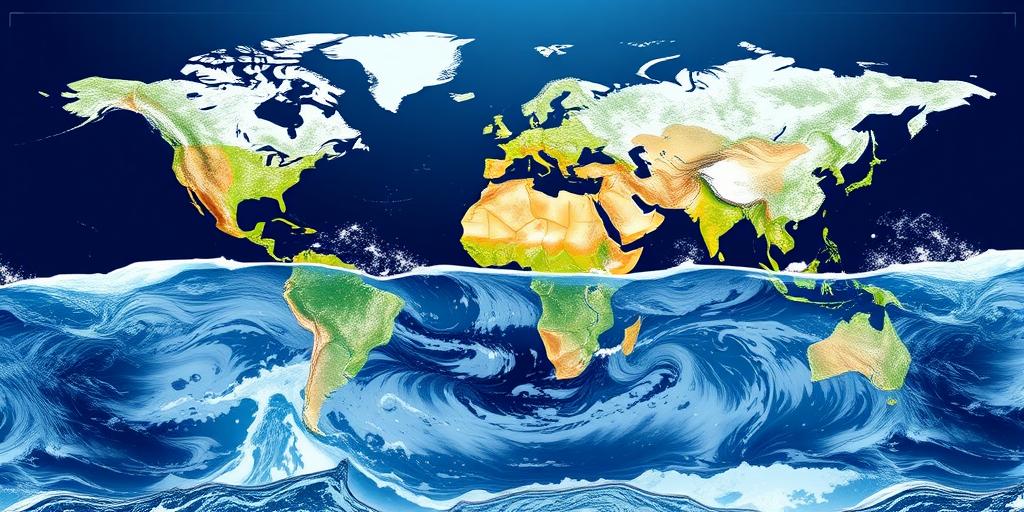Geopolitical Implications of Climate Change
Climate change is no longer just an environmental issue; it's a profound geopolitical disruptor. Its impacts ripple across borders, influencing international relations, security, and economic stability. Understanding these implications is crucial for policymakers, businesses, and citizens alike.
1. Resource Scarcity and Conflict
As temperatures rise and weather patterns shift, access to vital resources like water and arable land is becoming increasingly strained. This scarcity can exacerbate existing tensions and trigger new conflicts, particularly in regions already grappling with political instability. Consider these points:
- Water Stress: Areas facing severe water shortages may experience increased competition and cross-border disputes over water resources.
- Food Insecurity: Climate change impacts agricultural yields, leading to food shortages and price spikes, which can fuel social unrest and political instability.
- Migration: Environmental degradation and resource scarcity can drive mass migration, placing strain on host countries and potentially leading to conflict.
2. Shifting Geoeconomic Power
Climate change is reshaping global economic dynamics, creating both winners and losers. Countries that are heavily reliant on fossil fuels may face economic decline as the world transitions to cleaner energy sources. Conversely, nations that invest in renewable energy and green technologies could gain a competitive edge.
- Energy Transition: The shift away from fossil fuels is disrupting traditional energy markets, leading to new alliances and rivalries.
- Green Investments: Countries that attract green investments and develop innovative climate solutions are likely to see economic growth and increased influence.
- Trade Flows: Climate change is altering trade patterns, as some regions become more vulnerable to extreme weather events and others emerge as new centers of production.
3. National Security Threats
Climate change poses a direct threat to national security, both domestically and internationally. Rising sea levels, extreme weather events, and environmental degradation can undermine infrastructure, displace populations, and strain military resources.
- Infrastructure Vulnerability: Critical infrastructure, such as ports, airports, and energy grids, is increasingly vulnerable to climate-related disruptions.
- Disaster Response: Military forces are being called upon more frequently to respond to climate-related disasters, stretching their resources and capabilities.
- Security Risks: Climate change can exacerbate existing security risks, such as terrorism and organized crime, by creating ungoverned spaces and driving social unrest.
4. International Cooperation and Diplomacy
Addressing climate change requires unprecedented levels of international cooperation and diplomacy. However, differing national interests and priorities can make it difficult to reach consensus on effective climate action. Key considerations include:
- Climate Agreements: International agreements, such as the Paris Agreement, provide a framework for global climate action, but their effectiveness depends on the commitment of individual nations.
- Climate Finance: Mobilizing financial resources to support developing countries in their efforts to mitigate and adapt to climate change is essential for building trust and fostering cooperation.
- Climate Diplomacy: Engaging in constructive dialogue and building partnerships with other countries is crucial for addressing the shared challenge of climate change.
Conclusion
The geopolitical implications of climate change are far-reaching and complex. As the planet continues to warm, these implications will only intensify, requiring proactive and coordinated action at all levels. By understanding the interconnectedness of climate change, security, and international relations, we can work towards a more sustainable and peaceful future.









